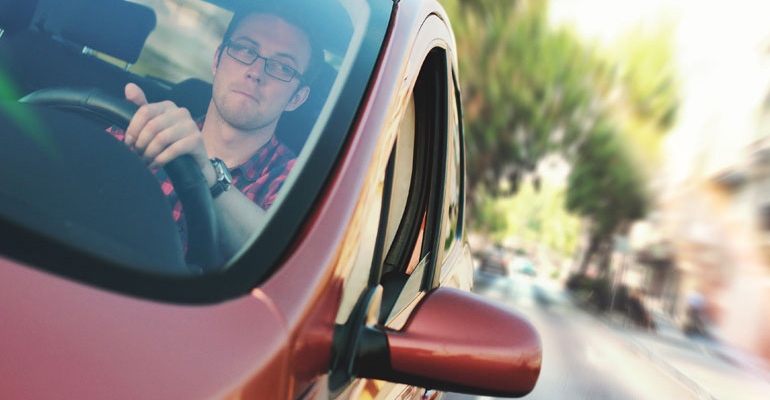Despite speeding being the most common of road traffic offences it can be the bane of a motorist’s life. It can mean penalty points that can push you over the edge and into disqualification from driving. It can also cost you a lot of money either in a fine or in higher car insurance premiums.
Obeying the speed limit is important but when you get caught on the wrong side of the limit you need expert help.
At Glasgow Road Traffic Lawyers we are familiar with all current speed detection equipment and methodology used by Police Scotland. It is vitally important for lawyers working in this field of law to follow the development and use of new technologies in speed detection. Understanding the way that these systems operate and knowing their “pluses and minuses” can be key to a successful defence.
Speed detection on Scottish roads is now achieved through the use of a number of different types of methods and equipment.
-
Average speed cameras
-
Fitted calibrated police speedometers
-
Laser detection equipment (LT1 2020/Pro Laser)
-
Radar
-
Provida gatso
Are just some of the names that you might come across in report prepared by the police in a speeding case.
The average speed cameras which are time and distance measurement systems have recently become much more common. The laser devices commonly used in Scotland such as Pro Laser devices have generally become more “reliable” than previously used systems including Radar.

FOR A FREE CONSULTATION CALL: 0141 413 8111
THE KEY TO A STRONG DEFENCE IS KNOWING WHAT THE POLICE DON’T WANT YOU TO KNOW
DO THE POLICE EVEN KNOW HOW TO USE THE EQUIPMENT?
In any case where the police have caught you using any form of speed detection equipment, in car systems, dash mounted or hand held devices of any kind, the police officers will be required to give evidence in court if you challenge the charge. If you challenge the ‘accuracy’ of the equipment the test for the prosecution is even greater. The police will need to demonstrate that the equipment is type approved, and has been properly tested, serviced and most importantly calibrated prior to use by the police. The police officers will also need to demonstrate that the equipment was “calibrated” and working as intended by the manufacturer immediately before use on the day the police used it to detect the speed of your vehicle. This is often much trickier for the police than it sounds and poses a problem for many a prosecutor.
IS THE EQUIPMENT CERTIFICATION CURRENT?
If the device used by the police does not have a current calibration certificate it may not be used in speed detection. It should always be checked as an absolute minimum inquiry of the prosecution case.
ARE THE TESTS ON THE EQUIPMENT VALID?
Speed detection equipment that falls in to the category of ‘type approved’ must always be maintained by suitably qualified technicians. It is not good enough that unqualified individuals simply carry out an assessment of the equipment. It is always worth checking the service history as well as the calibration of the equipment. Checks should be made that the servicing and technical assessment of the equipment has been carried out within the appropriate time periods, and that it was undertaken by a qualified individual. There will also be a log for the use of the equipment. This will be held by the police and can be requested. This will indicate whether the equipment has in fact been used before, how often. It may reveal issues that would not be otherwise apparent.
HOW DID THE POLICE USE THE EQUIPMENT ON THE DAY. WAS IT CORRECT AND PER MANUFACTURER’S USER GUIDELINES?
If the police carried out the proper procedures on the day of the use of the equipment, they will have checked whether the equipment appeared to be working properly. They will then have been required to test the equipment against pre determined distances. This is to ensure that on the day of use the equipment was capable of accurate measurement. The equipment should always be checked on the day of use, both before and after use on the roads. A failure to perform these important checks can be fatal to a prosecution.
ALL EQUIPMENT CAN PRODUCE BAD RESULTS IN CERTAIN CIRCUMSTANCES
This is a fact. The poor skills of an operator, or their ignorance as to the proper use of the device, can give rise to inaccurate results. The inherent faults found within some of these devices can also contribute to false results. The manufacturer guidelines for all speed detection equipment is a crucial starting point for any serious challenge to the test results being used against you. To competently challenge the weaknesses often present in speeding cases, you will require the assistance of a specialist road traffic lawyer.
AT BLACKWATER ROAD TRAFFIC LAW
we assure a strong challenge to every speeding prosecution.
================================
STAY ON THE ROAD WITH BLACKWATER ROAD TRAFFIC LAW. FOR A FREE CONSULTATION CALL 0141 413 8111

